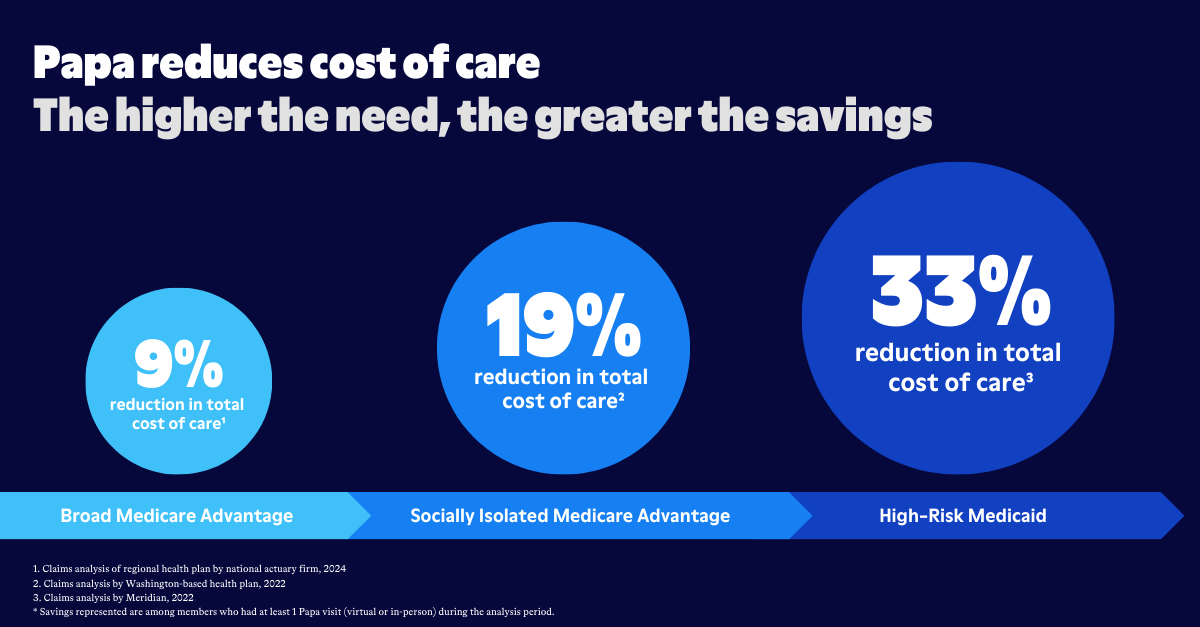
Health disparities are not going to go away overnight. They won’t go away in months, or even a few years. The good news is that the federal government is working toward health equity, and some recent programs and laws are helping us take steps toward eliminating systemic disparities in health care.
After we’ve looked at health equity from that 30,000 foot view, we need to take a deep dive into structural problems, their causes, and a comprehensive plan to make sure every person in this country gets the health care they need and deserve.
It can feel overwhelming, yes, but we can accomplish it together. Achieving health equity in the U.S. will require a full-fledged long-term effort by all of us. As innovative health plan providers, your role in this effort is so important, but you need support at the state and federal level.
The good news is that health plans have been working to come up with creative strategies to address health disparities for several years now. One example of this is Meridian, who has added social support benefits to their plans with great results. (If you want to hear more about this, click over to hear this free on-demand webinar that explains their strategy.)
But addressing health equity takes work from everyone. Fortunately, the health disparities discussion has gotten all the way to the top. The federal government is paying attention—and taking action. The Biden-Harris administration has a health equity pathway, and they aren’t wasting another minute just talking about it.
What is Biden’s health care plan?
President Biden has made health equity for all Americans a priority for his administration. In a statement on January 27, 2022, he announced, “Health care should be a right, not a privilege, for all Americans. And one year into my administration we are making that right a reality for a record number of people—bringing down costs and increasing access for families across the country.”
President Biden has said that his new health care plan will insure more than 97% of Americans by introducing a Medicare-like public option for both families and individuals. He also plans to improve the Affordable Care Act, put an end to surprise billing, reduce the cost of prescription drugs, and make it easier for people to access Medicare.
How will Biden’s plan decrease health disparities?

Yes, this health plan will benefit all Americans, but the Biden administration also realizes that extra measures need to be taken to eliminate health care disparities brought to light by the COVID-19 pandemic and other incidents like the rise in Asian hate crimes and police brutality. These disparities aren’t new—documentation goes back decades—but it seems the government is finally primed and ready to put an end to them.
On November 6, 2022, the administration released a lengthy statement detailing the many actions they would be taking to advance equity and opportunity for Black Americans and communities in particular across the country. Here are some of them.
A $6 billion investment in community health centers
In addition to health disparities that have always existed, the COVID-19 pandemic disproportionately impacted communities of color. One of the key programs launched by the Biden-Harris administration to address health equity is a $6 billion investment in community health centers.
These centers primarily serve those living at or below the poverty line, and over 50% of vaccines administered at the federally-run community vaccination centers went to Black Americans and other minority groups. More than 75% of people vaccinated at community health centers are people of color.
This influx of money will help these centers:
- offer more COVID-19 testing and vaccinations in vulnerable communities
- deliver preventive and primary health care services to people at higher risk of the virus
- expand operating capacity by improving infrastructure and adding mobile units
Taking steps to protect Black maternal health

Black women are three times more likely to die from a pregnancy-related cause than White women. This is unacceptable, and the Biden administration is committed to protecting Black mothers and improving maternal health outcomes.
Black Maternal Health Week is recognized each year from April 11-17 to bring attention to Black maternal health disparities—and to take action to improve Black maternal health. In April 2021, President Biden issued the first ever Presidential Proclamation on Black Maternal Health Week and called on all Americans to recognize and address the crisis of Black maternal mortality and morbidity. The President issued a proclamation in April 2022 as well.
In June 2022, the Biden-Harris Administration’s Blueprint for Addressing the Maternal Health Crisis was released and includes several key initiatives:
- extending Medicaid postpartum coverage for 12 months in several states
- improved maternal health data through enhanced federal partnerships
- hiring, training, and deploying a more diverse maternal care workforce
- better access to doulas and midwives
Improving health outcomes for Black communities
Another way President Biden is committed to addressing health disparities is by lowering health care costs and expanding coverage for Black families. Almost 3.9 million Black people were uninsured in 2019 before he was elected and over 570,000 Black people fell into the Medicaid “coverage gap.” Since President Biden took office, the uninsured rate has reached a new historic low of 8% and 5.2 million of Americans have gained health insurance coverage.
Millions of lower- and middle-income Black families enrolled in health insurance marketplaces saw their premiums lowered or eliminated as a result of the American Rescue Plan (ARP) and will continue to benefit from provisions included in the Inflation Reduction Act (IRA), which locks in lower monthly premiums. In 2021, over 75% of uninsured Black Americans had access to a plan with a $50 premium (or less). Roughly 66% could access a plan with a $0 premium.
Over half a million more Black Americans will have health insurance coverage next year.
Other initiatives that will promote health equity
The list of things the Biden administration is doing to combat health disparities is encouraging.
- promoting mental health for Black youth
- lowering prescription drug costs for Medicare beneficiaries in particular
- ending the federal prohibition on SNAP benefits for formerly incarcerated individuals
- increasing cultural competence for Black Americans with disabilities
- creating a pathway for free, healthy school meals for all
- recruiting and training more Black nutrition professionals
- building the pipeline of Black health care providers
- going into communities to close the racial vaccination gap
- expanding mental crisis response and access to treatment
In addition, the Department of Health and Human Service (HHS) has an Office of Minority Health that is focused on the “success, sustainability, and spread of health equity promoting policies, programs, and practices.”
Moving forward toward equity—together
Addressing disparities in health care is obviously important from a human rights and equity standpoint, but it will also improve the nation’s overall health and economic prosperity. The U.S. population is becoming more diverse every day, and health disparities are costly.
The efforts being made by the federal government are encouraging, but it will take all hands on deck—at the state level, in local communities, private organizations, health care providers, and individuals—to make health disparities a thing of the past.



